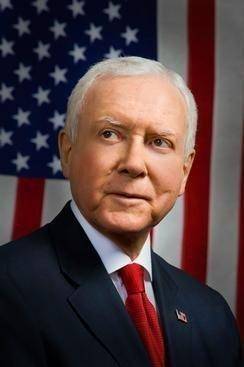Despite what U.S. Senator Orrin Hatch (R-Utah) calls the misleading rhetoric from the White House, report after report demonstrates that President Obama’s massive $2.6 trillion, 2,700 page health law will have a devastating effect on our struggling economy. With the national debt more than $14.5 trillion and unemployment still over nine percent, Hatch called for the repeal of ObamaCare to be considered as a means to reduce the deficit and create jobs.
“We all knew that ObamaCare was going to be disastrous for our economy and every day that goes by proves that point,” Hatch said. “Whether it be the trillions of dollars in tax hikes or the sheer number of job losses directly from ObamaCare itself, it’s clear that repealing ObamaCare must be on the table during any talks to slash our nation’s debt and create much-needed jobs.”
The following are some of the top ten reasons why ObamaCare is detrimental to our economy:
- $1.094 trillion in new taxes and penalties once ObamaCare is fully implemented for a full ten years beginning in 2014.В (According to an analysis by the Senate Finance Committee Republican Tax Staff derived from projections by the Senate Budget Committee Republican Staff (March 21, 2010) based on estimates by the Congressional Budget Office and The Joint Committee on Taxation)
- $701 billion increase to the deficit in the first ten years of ObamaCare (Report by the House Budget Committee, “The Budget Record of the 111 th Congress: More Spending, Taxes, Deficits and Debt,” September 29, 2010)
- $2,100 increase in premiums for families buying insurance on their own due to ObamaCare (Letter from the Congressional Budget Office to Senator Evan Bayh regarding health care premiums, November 30, 2009)
- 800,000 reduction in the American labor force due to ObamaCare provisions that “will effectively increase marginal tax rates, which will also discourage work” (Testimony of Douglas W. Elmendorf, Director, Congressional Budget Office, House Budget Committee Hearing “The Congressional Budget Office’s Budget and Economic Outlook,” February 10, 2011)
- $118 billionВ in new costs imposed on states for ObamaCare’s Medicaid expansions—budgetary costs that will crowd out other state programs like education or law enforcement (Joint Report by the Senate Finance Committee and House Energy and Commerce Committee, Medicaid Expansion in the New Health Law: Costs To The States, March 1, 2011)
- $311 billionВ projected increase in health costs due to ObamaCare (Report from Richard S. Foster, Chief Actuary at the Centers for Medicare & Medicaid Services, April 22, 2010)
- 9.4 percent increase in private health insurance premiums in 2014 (4.4 percentage points higher than without the health law) (“ National Health Spending Projections Through 2020: Economic Recovery And Reform Drive Faster Spending Growth,” Health Affairs, July 28, 2011)
- 10.7 percent increase in prescription drug spending in 2014 (5.1 percent higher than without the health law) (“ National Health Spending Projections Through 2020: Economic Recovery And Reform Drive Faster Spending Growth,” Health Affairs, July 28, 2011)
- 8.9 percent increase in physician and clinical services in 2014 (3.1 percent higher than without the health law) (“ National Health Spending Projections Through 2020: Economic Recovery And Reform Drive Faster Spending Growth,” Health Affairs, July 28, 2011)
- 7.2 percent increase in hospital spending in 2014 (1.0 percent higher than without the health law) (“ National Health Spending Projections Through 2020: Economic Recovery And Reform Drive Faster Spending Growth,” Health Affairs, July 28, 2011)

